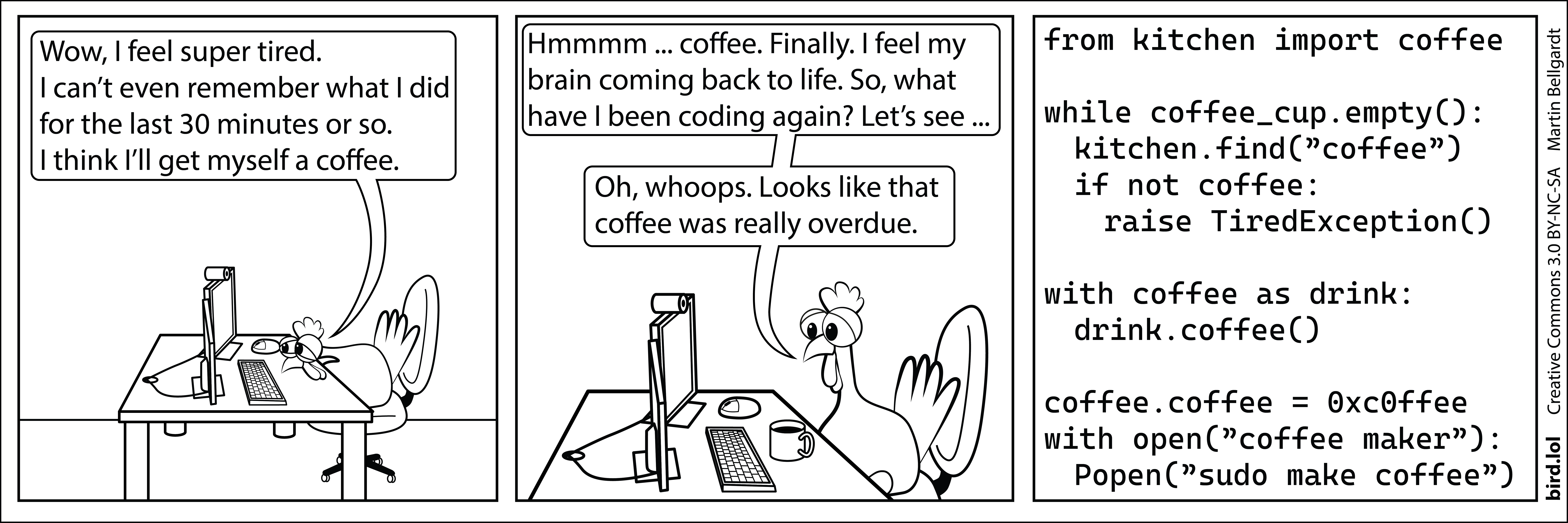Hello, I'm Martin and I'm addicted to coffee.
Maybe you are as well. So many people are addicted to caffeine, the psychoactive compound found in the most popular drink in the world. Still, most of them don't take this as an opportunity to critically assess their views on addiction. Many even deny that they're addicted and would not consider caffeine a drug.
For me, coffee is a perfect precedent for the fact that addiction is not an inherent problem. It's *what* you're addicted to and what impact it has on your life that matters. There are many cases of extremely problematic addictions out there. Things that destroy peoples lives. These are the things we need to take care of as a society (and there is a lot to do there, as we currently handle them really poorly).
But simply the fact that something is addictive does not make it problematic. This is even more true when we're talking about psychological addiction, which can happen with absolutely anything. But there is a blurry line between a problematic addiction and just liking something a lot. Most frequently, this line is drawn where there is a "negative impact" on people's lives. The problem with that is, that whether there is a "negative impact" is still quite subjective.
Let's make an example: Let's think of an imaginary person called Steven, who is addicted to building Ikea furniture. Steven spends all his money on bookshelves, cupboards, side-tables and chairs he doesn't need and most of his free time is taken by assembling, disassembling and reassembling them until they are too broken to be assembled again, at which point he throws them away. For Steven, opening a fresh box of Ikea furniture is the best feeling in the world.
Our first instinct might be to say that Steven has a problem. But is Steven's addiction actually problematic? There's multiple angles to approach this question. First of all, we could ask: Is he happy? To which the answer would be yes, since he is able to fulfill his desires and spends his free time doing the thing he loves most. We could ask: Is he valuable for society? To which the answer would be more complicated. In principle, yes, since has a regular day job where he dutifully contributes to society to earn the money he uses to buy his furniture. On the other hand, taking an environmentalist point of view, we might say that he wastes a lot of resources (climate change in the real world is not solved, after all).
Conversely, let's look at another imaginary person called Jessica. Jessica has a pretty normal life. She works the in the exact same job as Steven and earns the same amount of money. In her free time she likes to read books, watches Movies and goes on vacation with her boyfriend twice a year. She really loves sight seeing, so they fly to all kinds of places around the globe.
Jessica is also happy. She also contributes to society in the same way that Steven does. However, her carbon footprint is likely worse, since the carbon emissions produced by flying are unmatched by almost any other thing you can do with your money. Still, Jessica seems more healthy to us. But is this attitude, where we consider Jessica to be a pretty regular person and Steven to "have a problem", really grounded in any of our core values?
I feel like people's view on addiction is often very much driven by normativity. People like Steven don't behave in a way that we'd consider to be "normal", so we get an eerie feeling when interacting with them. We cannot use our prototypical model of other people to predict their behavior, so forming a relationship with them requires more effort. And I'm not saying you need to overcome these feelings and you're a bad person if you don't let these people into your life. I'm just saying: don't blame it on them. People should have the right to be different.

